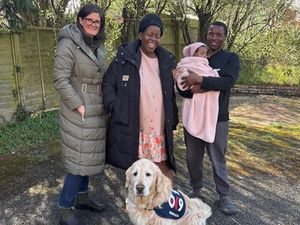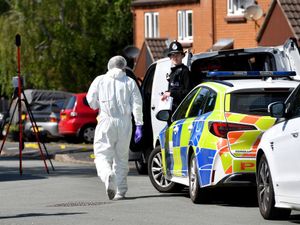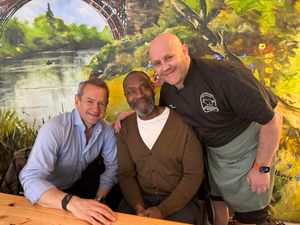Heroism of millions like John recalled
He was one of millions who fell fighting on the bloody fields of northern Europe during World War One.
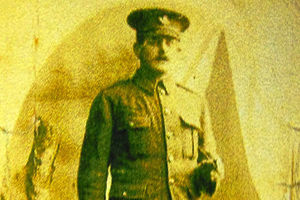
Almost exactly 100 years ago to the day, Private John Broomfield, 33, of the 6th Battalion Kings Shropshire Light Infantry, fell in action whilst trying to save the life of a wounded comrade.
And his story is just one of countless acts of heroism from the war – the reason millions were falling silent today for Remembrance Sunday.
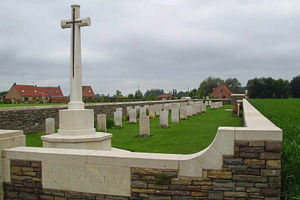
The great battles of 1915 lack the resonance 100 years on of those which were to capture the public's imagination for their horror, waste, and futility.
In 1916 almost 20,000 soldiers were killed, wounded, or missing in just one day as the British Army launched its "big push" on the Somme.
And then in 1917 there is Passchendaele, which holds a special place, a campaign fought amid a sea of mud which swallowed up men so that they were never seen again.
Loos, Festubert, Aubers Ridge, Neuve-Chapelle . . . these were names to send a chill down the spines of the 1915 generation of British soldiers, thousands of whom were to pay the price of mistakes by generals who only slowly learned the lessons and realities of trench warfare and, in the opinion of many, never really did.
This was also an end of an era for the British Army and its troops, because 1915 was the last year that those in the front line were there because they wanted to be there.
It was a volunteer army of those pre-war regulars who had borne the brunt in the early months of conflict and the thousands of patriotic and enthusiastic young men who had thereafter answered the call to arms and had signed up to join the big adventure and do their duty.
But Lord Kitchener's "Your Country Needs You" campaign proved not enough and in March 1916 the Military Service Act was passed. Conscription had arrived.
From a strategic point of view, the war in the west had become one big long slogging match with the trench warfare which is so associated with the collective perception of the Great War.
With defences as they were there were no breakthroughs and for soldiers taking their turn in the front line trenches, death was only a mischance or mistake away, even if they were not going "over the top".
In an artillery barrage, you could at least take cover and pray. Show your head over the top of the trench and you would never hear the sniper's bullet that killed you.
Private Broomfield fell in an area known as Rouge Bancs, which is directly in front of the village of Fromelles on the Aubers Ridge. This same place was the scene of an infamous battle in July 1916 where the Australians suffered 5000 casualties in one day on this desolate, wet and flat terrain.
Private Broomfield, from Preston Brockhurst, near Shrewsbury, was killed on November 5 1915 alongside Frederick Grimes, another soldier involved in the rescue bid.
They lie alongside each other in Cemetery Number 1, Laventie, Neuve-Chapelle, Northern France.
Private Broomfield's death was recorded in the Christmas 1915 edition of the Moreton Corbet Parish News, which carried a testimonial to the fallen soldier from the captain of his company.
The captain said: "It was indeed an act of heroism and we are proud of him. He was killed by a bullet to the head and death was instantaneous. He will be greatly missed in the company for he was always cheerful, ready and willing to do anything that was required of him. RIP."
The story of Private Broomfield means a great deal to his grand-nephew Ronald Broomfield, 80, who lives in Castle Donington, Derby.
Ronald, a retired railway engineer, has a deep interest in family genealogy – which led him to John's story.
He said: "My understanding is that John's four young children were taken in by other members of family as his wife was so overcome by her husband's loss that she couldn't cope."
A generation of young men fell among the mud, trenches and poppy fields that characterised the Great War and Ronald feels those men will never be forgotten.
He said: "I feel the sacrifice of ordinary men in World War One and the consequence to their families was so enormous that they deserve to be remembered 100 years later.
"My great-uncle was a man who like so many had blindly accepted it as their duty to go and fight – and I think the last vestige of Britain's feudal system surely ended there."

